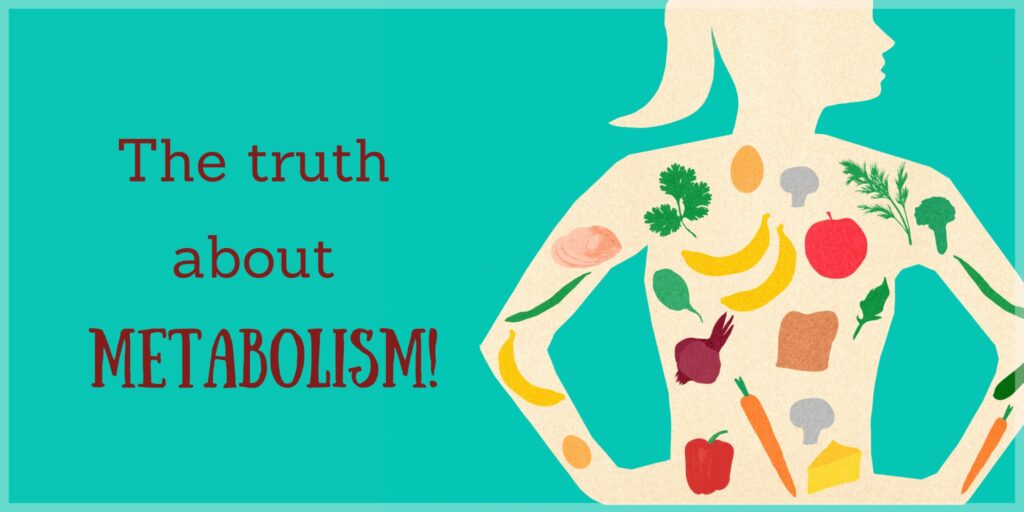Metabolism in the human body
Metabolism in the human body is discussed thoroughly in this article. The mechanism through which the body transforms what we consume into energy is known as metabolism. Calories from meals and drinks are mixed with oxygen in this intricate process to generate the energy that the body requires to operate. Even though you’re sleeping, your body takes energy to do all of its “invisible” operations, such as respiration, pumping blood, regulating levels of hormones, and developing and rebuilding cells. Your baseline metabolic level — often known as metabolism — is the number of calories your body consumes to perform these essential processes. Energy requirements for your body’s critical operations are largely constant and difficult to adjust. Slow metabolism is often cited as the cause of excess weight gain, but what does that actually entail? And can we really put this down to our sluggish metabolism? Is it feasible to speed up your metabolism to expend more calories? Weight and metabolism are indeed connected, and a sluggish metabolism, despite popular assumptions, is seldom the source of excessive weight accumulation.
Two important elements of metabolism
Along with your basal metabolic rate, two more elements contribute to how many calories your body spends every day: food processing, often known as thermogenesis, and physical activity. Digesting, absorbing, transporting, and storing the food you ingest also consumes calories, with around 10% of the calories in the carbs and protein you consume going toward digestion and absorption. Workouts — like playing tennis, strolling to the shop, or running after the dog — contribute to the remaining calories your body burns each day. Physical activity is perhaps the most changeable element affecting the number of calories burned daily. Metabolism in the human body considers one’s age since one’s muscle mass diminishes, and fat makes up a bigger proportion of one’s weight as one ages, limiting calorie burning. Scientists refer to the activity you undertake throughout the day that is not purposeful exercise as non-exercise activity thermogenesis, referred to as NEAT. These activities involve strolling between rooms, gardening, and even fidgeting, and they account for between 100 to 800 calories consumed daily.
Weight and metabolism
While it may be easy to blame your metabolism for weight gain, metabolism is a normal process that your body regulates to fit your unique demands through various techniques. Metabolism in the human body takes gender into account because males typically have less body fat and greater muscle than women of the same age and weight, implying that men burn more calories. Excessive weight gain occurs extremely rarely due to a medical condition that lowers metabolism, like Cushing’s syndrome or hypothyroidism with an underactive thyroid gland. Generally speaking, weight gain is an intricate process that is probably influenced by genetics, hormonal regulation, dietary preferences, and the ecosystem’s influence on your living styles, such as sleep, physical activity, and stress. Every one of the elements above contributes to an unbalanced energy equilibrium. When you consume more calories than you expend — or spend fewer calories than you consume — you put on weight. Although some people tend to be capable of shedding weight faster and more effortlessly than others, everybody ends up losing weight once they expend more calories than they consume. In terms of weight loss, you must establish an energy deficit by consuming fewer calories or boosting the number of calories you spend via workout.
Examining physical activity and metabolism
Even though you possess little authority on the pace of your basal metabolism, you could alter calorie consumption by increasing your physical activities. The more energetic you are, the more calories you expend, and some people with a rapid metabolism are probably just more vigorous — and maybe fidgetier than others. Metabolism in the human body takes into account the individual’s physical size and composition, as those who are bigger or muscular expend more calories even while at rest. Aerobic activity, which encompasses activities like walking, biking, and swimming, is the most effective method to expend calories. Incorporate a minimum of 30 minutes of physical exercise in your everyday regimen as a baseline objective. If you desire to reduce weight or achieve certain fitness objectives, you might require to raise the amount of time you devote to exercising. If you don’t have time to commit to a lengthier workout, consider 10-minute bursts of activity throughout the day; keep in mind that the more energetic you are, the more advantages you’ll reap. You must remember to maintain a close watch on your eating habits to keep your metabolism in check.



